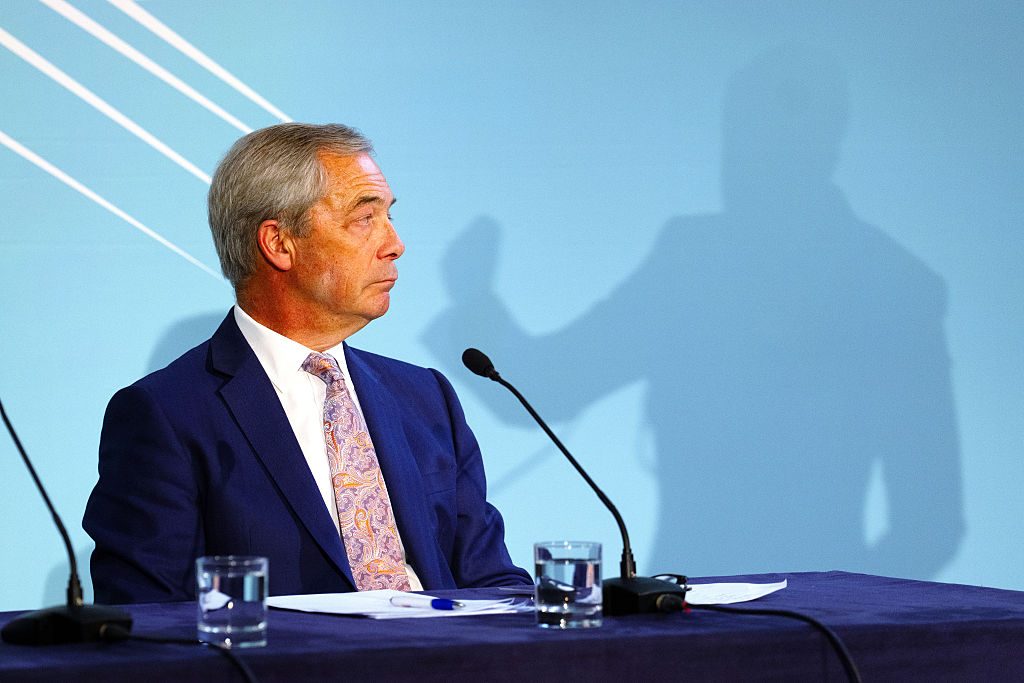Nigel Farage has proposed extending Labour’s mooted visa bans to Nigeria and Eritrea if Reform UK comes to power.
Speaking at a Westminster press conference this morning, Farage hailed Shabana Mahmood’s announcement of new migration bans in the Commons yesterday as “long overdue”. He stated that it was a “sensible negotiating tactic” and “one of the most attractive things that she said”.
Yesterday evening, the Home Secretary laid out a range of measures to cut immigration into the UK. The proposals include extending the time during which refugees can apply for citizenship from five years to 20 years, as well as deporting refugees back to their home countries when it becomes safe to do so.
Mahmood also confirmed that the Home Office would impose a visa ban on Angola, the Democratic Republic of Congo and Namibia if their governments do not increase cooperation with the UK’s deportation efforts of their nationals.
Farage this morning praised the Home Secretary’s move, saying “let’s show some muscle, as a country” in reference to visa bans, and adding that the same could be done “with Nigeria, et cetera, even Eritrea maybe”.
In the year to June 2025, Home Office data suggests 5.5% of total visas issued to the UK were from Nigeria, while Eritrea is one of five countries that accounts for more than half of the illegal entries into the country. Nigerian nationals also had the third-highest incarceration rate among all nationalities of 21.7 per 100,000, higher than the average of UK nationals.
However, Farage warned that Labour was not competent enough to achieve what Mahmood had set out, saying: “I just don’t believe any of it with this government.” The Home Secretary had hinted that the ban could be extended, stating that “unless other countries heed this lesson, further sanctions will follow.”
Previously, Reform has not suggested that it would block visas from specific countries, though the party has pledged to bring in harsher visa measures such as scrapping Indefinite Leave to Remain, which is the right to live, work and study in the UK without needing to renew a visa.
Today, Farage also announced the reduction of foreign aid spending and spending on welfare for foreign nationals, such as the eventual ending of Universal Credit payments to all overseas nationals. This includes those with EU settled status. Under the current terms of the Brexit deal, EU nationals are allowed to apply for settled status and, if approved, gain access to public services and some benefits.
During his first administration, Donald Trump implemented a visa ban which restricted entry into the US from 13 other countries in order to “prevent the entry of those foreign nationals about whom the United States Government lacks sufficient information”. In June, the US President announced the reinstatement of the travel ban after it had been scrapped by the Biden administration, banning 12 countries from entry and partially restricting a further seven.
Conservative leader Kemi Badenoch also held a press conference this morning addressing the Government’s new migration proposals. She claimed that “we spent a year making sure our policies are robust and stand up to scrutiny. That is not the same for Reform, who wait for us to announce things, copy it, then tweak it slightly.”
During his press conference, Farage also denied Reform would vote with the Government on its new migration proposals. After all, he said, “why would we vote for something if we don’t think it will happen?”










Join the discussion
Join like minded readers that support our journalism by becoming a paid subscriber
To join the discussion in the comments, become a paid subscriber.
Join like minded readers that support our journalism, read unlimited articles and enjoy other subscriber-only benefits.
Subscribe